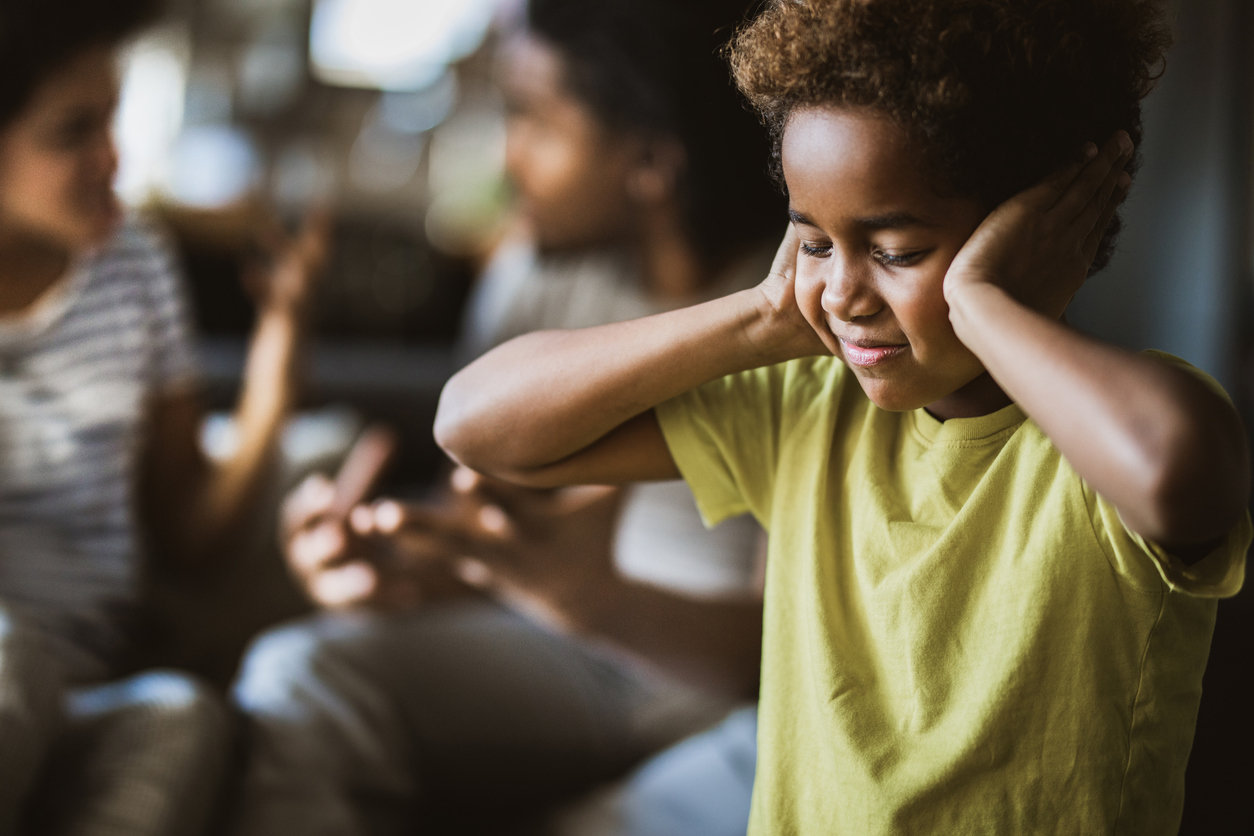
If we listened to a lot of people in our lives — including some family members and religious leaders — we would never even consider the idea of a divorce. It's often presented to people, especially to parents, as a kind of huge failure, and a decision that will ruin kids' lives. But the truth is, sometimes being in two stable, happy homes — rather than being in one home full of anger, resentment, and/or extreme chilliness between the parents — is exactly what's best for both the parents and the kids.
Like any big change or decision in life, divorce isn't easy — but many people have been there before us, and we can take some notes from them to help make our own paths easier. It's also important to know if it's time to consider divorce, and whether that huge change is a good fit for a family. Divorce is hard, and it's important to know we're not alone in some of the difficulties.
While a divorce is always going to involve some new routines and getting used to a new schedule, in the end, it often produces considerably more stability and structure for kids, which they love. So rather than listen to the omnipresent "they," that voice in our heads that tells us not to do things simply because it goes against the grain and isn't polite, it's OK to listen to ourselves and do what we think and know to be best for our families.
While a divorce is challenging for kids, it's not the worst thing that can happen. It could be that staying in a marriage "for the children" is a much bigger mistake.
Not Having a Parent Who Loves Them Unconditionally
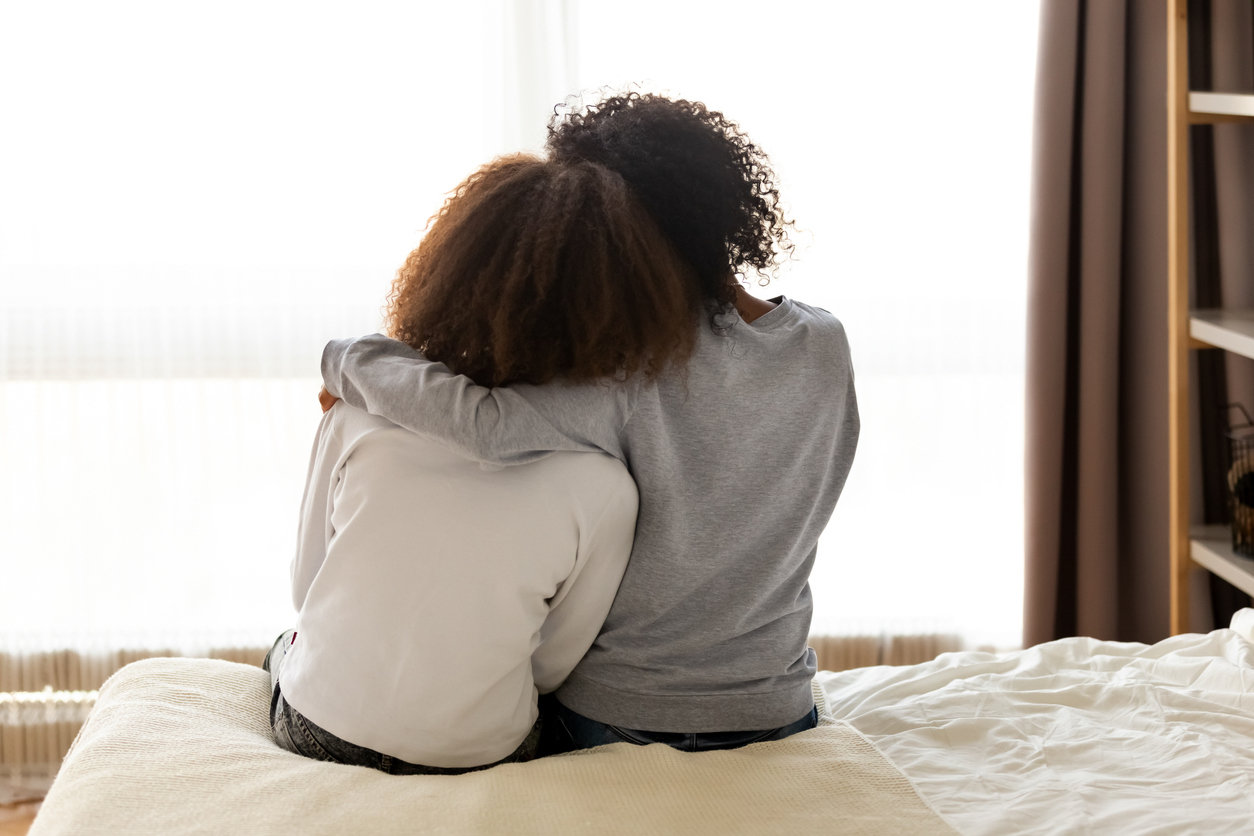
Yes, a divorce is going to be trying and difficult and scary for everyone involved. But what kids really need, more than anything else, is a parent who loves them unconditionally. A lot of kids around the world don't have that, so kids who do are lucky — whether their parents are together or not.
Hearing Parents Scream at Each Other Regularly
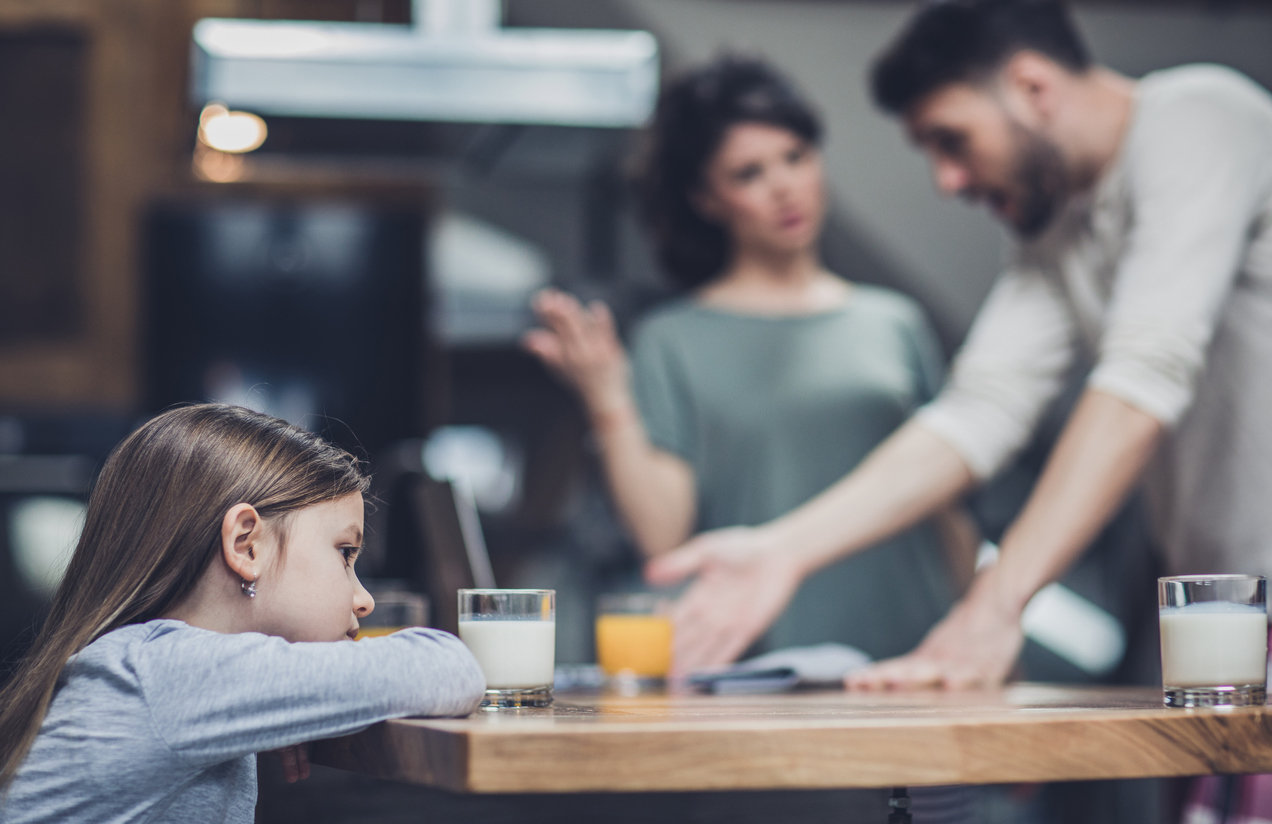
We pretty much all get into fights with our partners sometimes. It's normal! But if the screaming matches are consistent — and ugly — kids can always tell that that really isn't normal, and that's way worse than having two, happy homes.
Having Parents Who Stay Together Despite Being Miserable
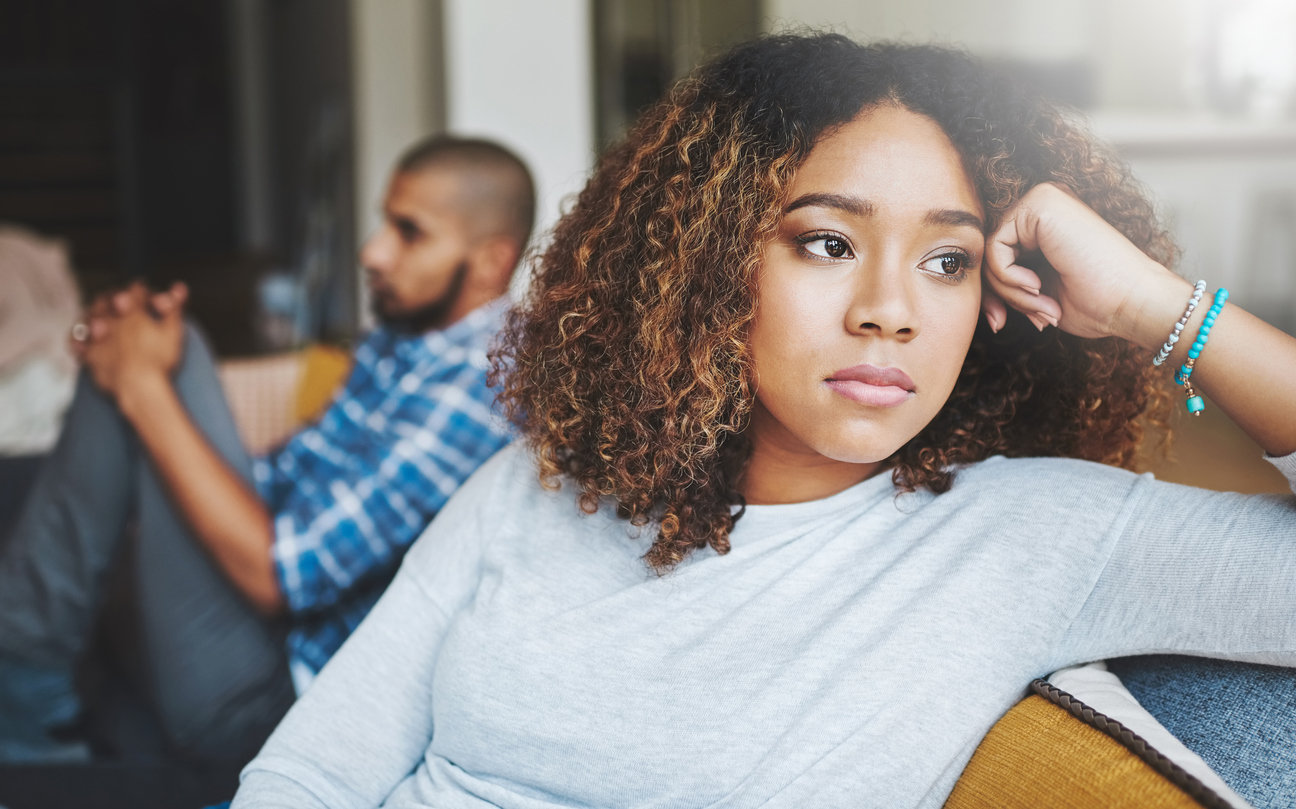
We've said it before and we'll say it again: Kids aren't dumb. Kids can tell when parents are deeply unhappy. They can feel it, they have high emotional intelligence and pick up clues about how people are really feeling really easily and quickly.
Living in a House Full of Tension 24/7

Kids are little emotional sponges, and suck up all the energy in the home around them. We all have good and bad days (and good and bad moments and hours!) but if the tension in the house is sky-high more often than not, they're going to recognize it.
Feeling Guilty About the Parents Staying Together
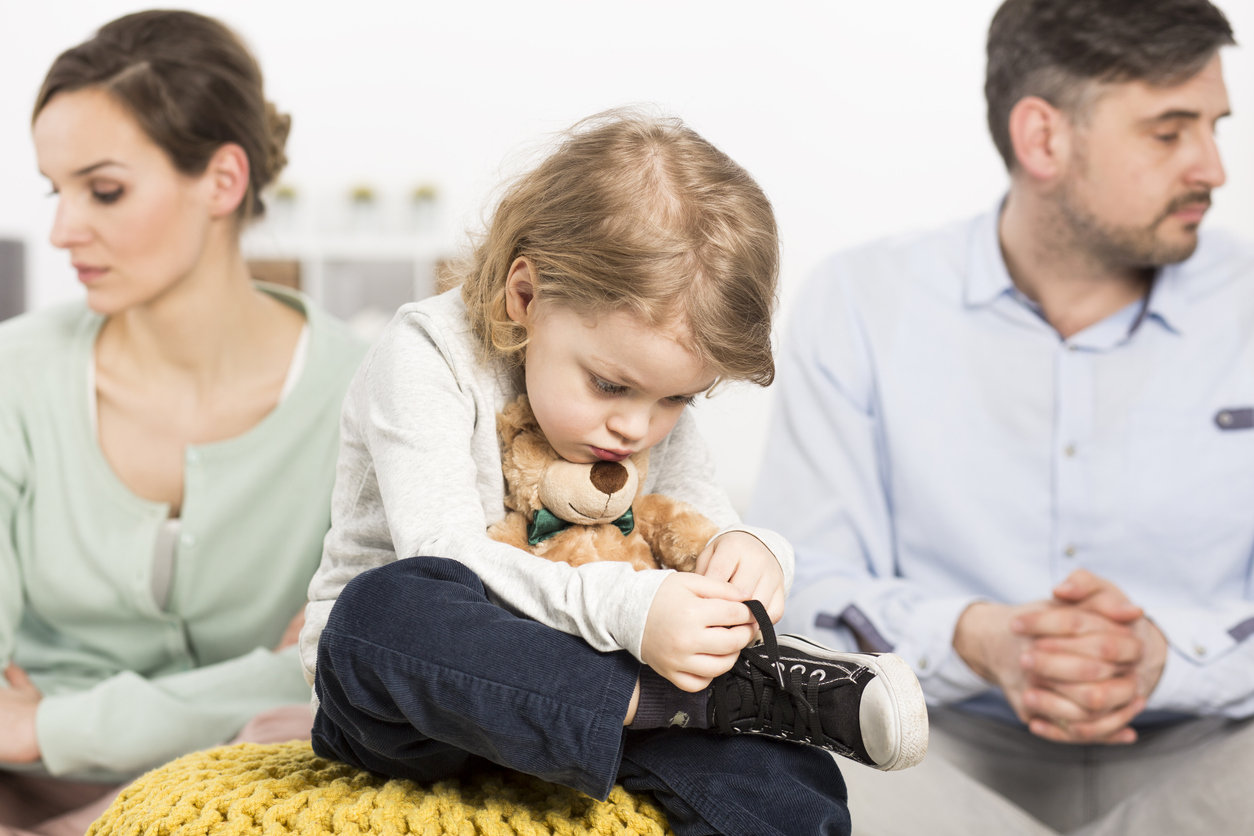
While staying together for a while after a marriage has really ended so the kids can get out of the house can be a good a fit for some families — and we're not judging when it is — it's not a good option for all families. If the kids know that they're the only reason their parents are together, they'll feel guilt, too.
Living in a Cold, Silent House
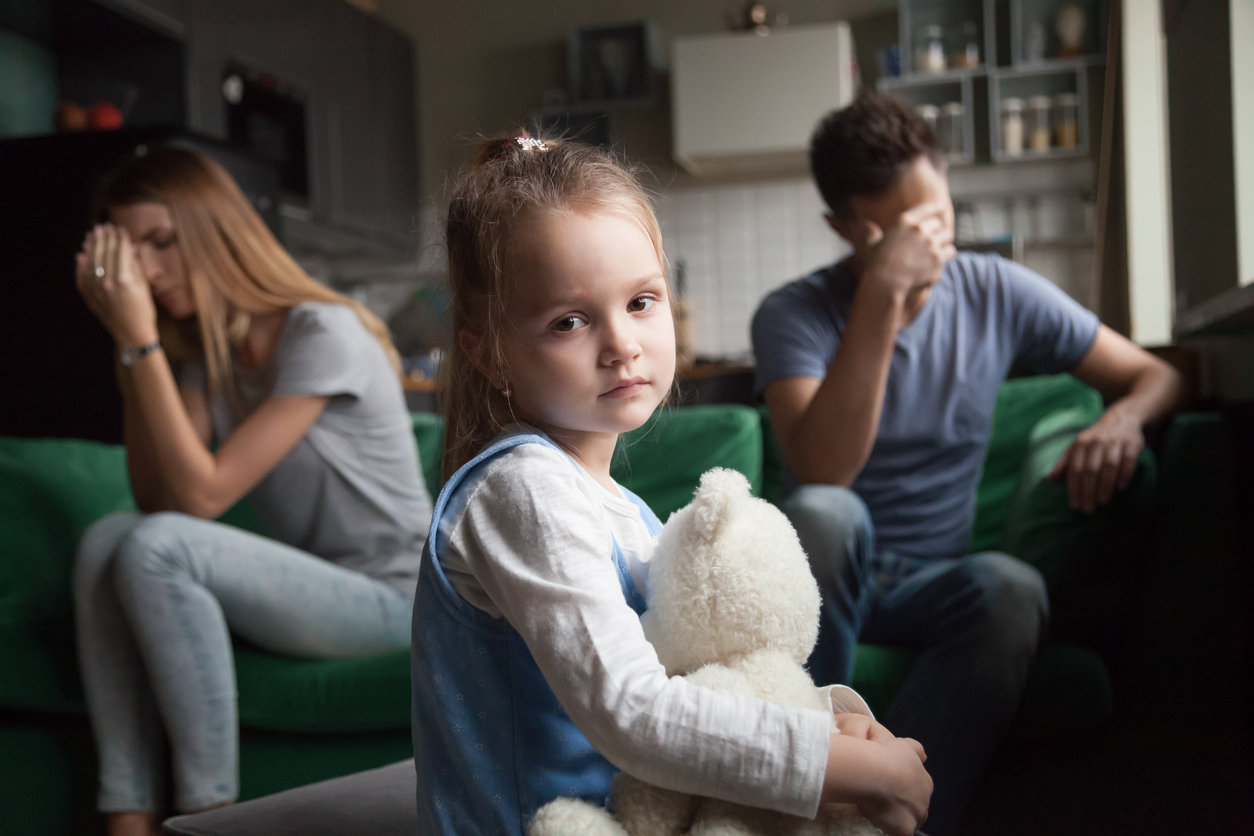
Some parents who should get divorced aren't fighters — they're more likely to give each other the cold shoulder. Kids who grow up in icy homes bring that rigidity into their adulthoods, too — better two warm homes than one cold one.
Listening to One Parent Belittle the Other
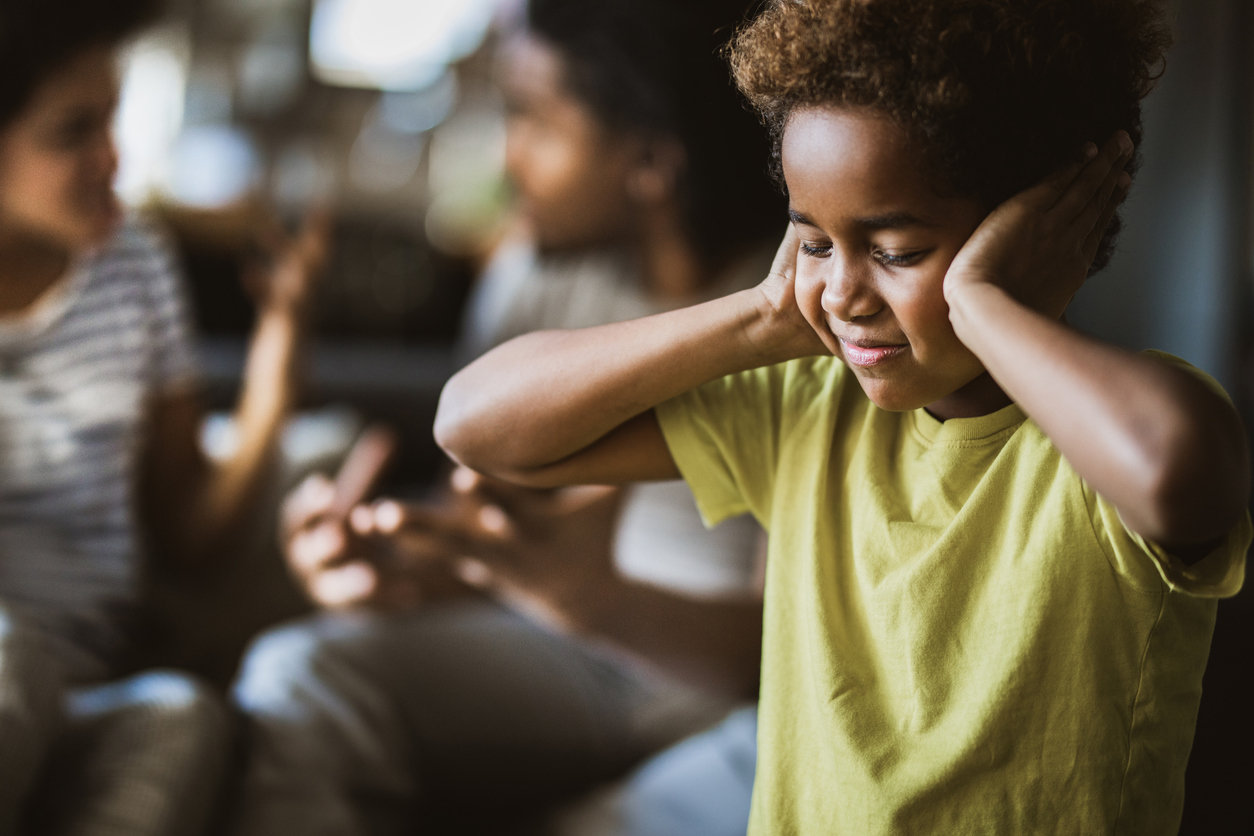
If the arguments in the house turn into one parent belittling the other — calling them names like "stupid" or even worse — then kids hear that and start to resent one parent, or even both of them, for their part in it.
Getting Used to Constant Fighting
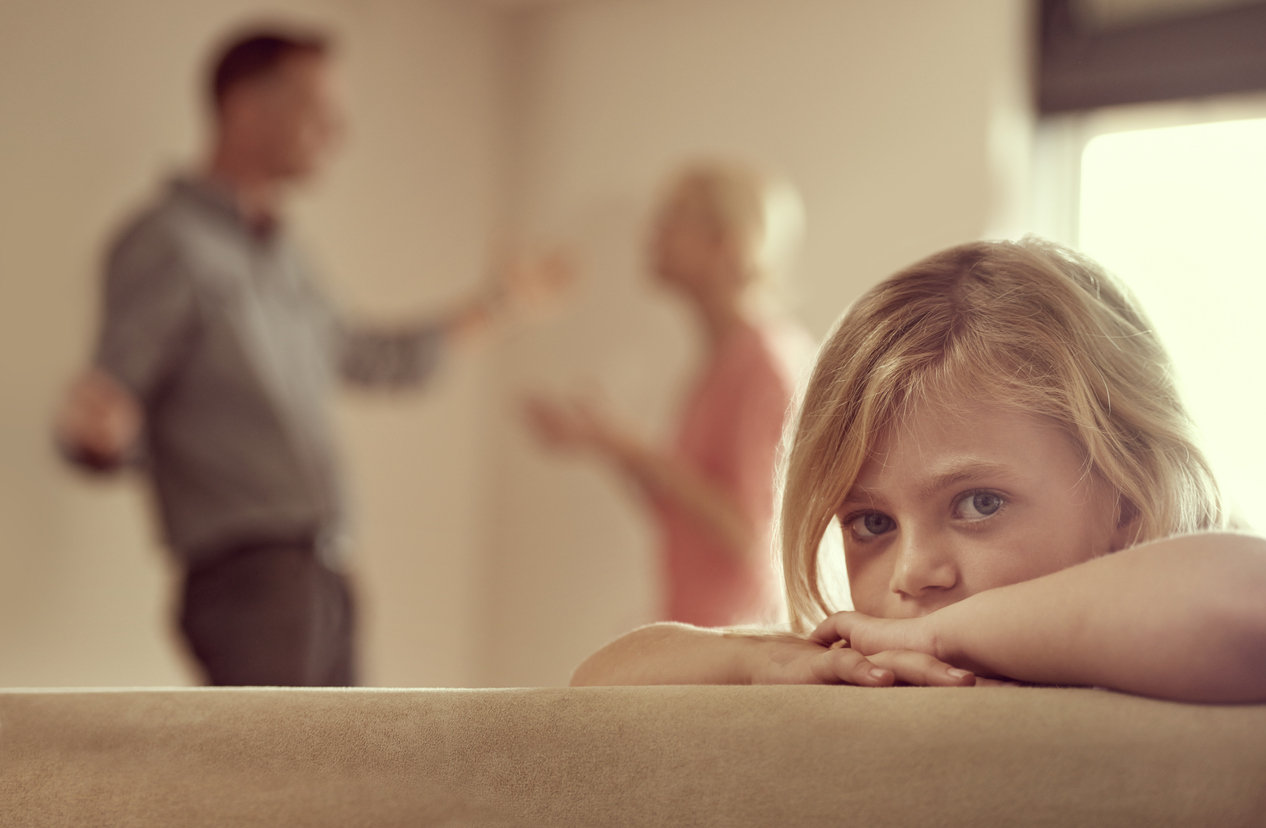
Kids are really great at adapting to new situations, which is a fantastic quality, but if they end up adapting to constant fighting, which is not ideal. It can affect how they do in school, and how they process their own feelings, too.
Internalizing That Being Unhappy & Mean Is How Couples Behave
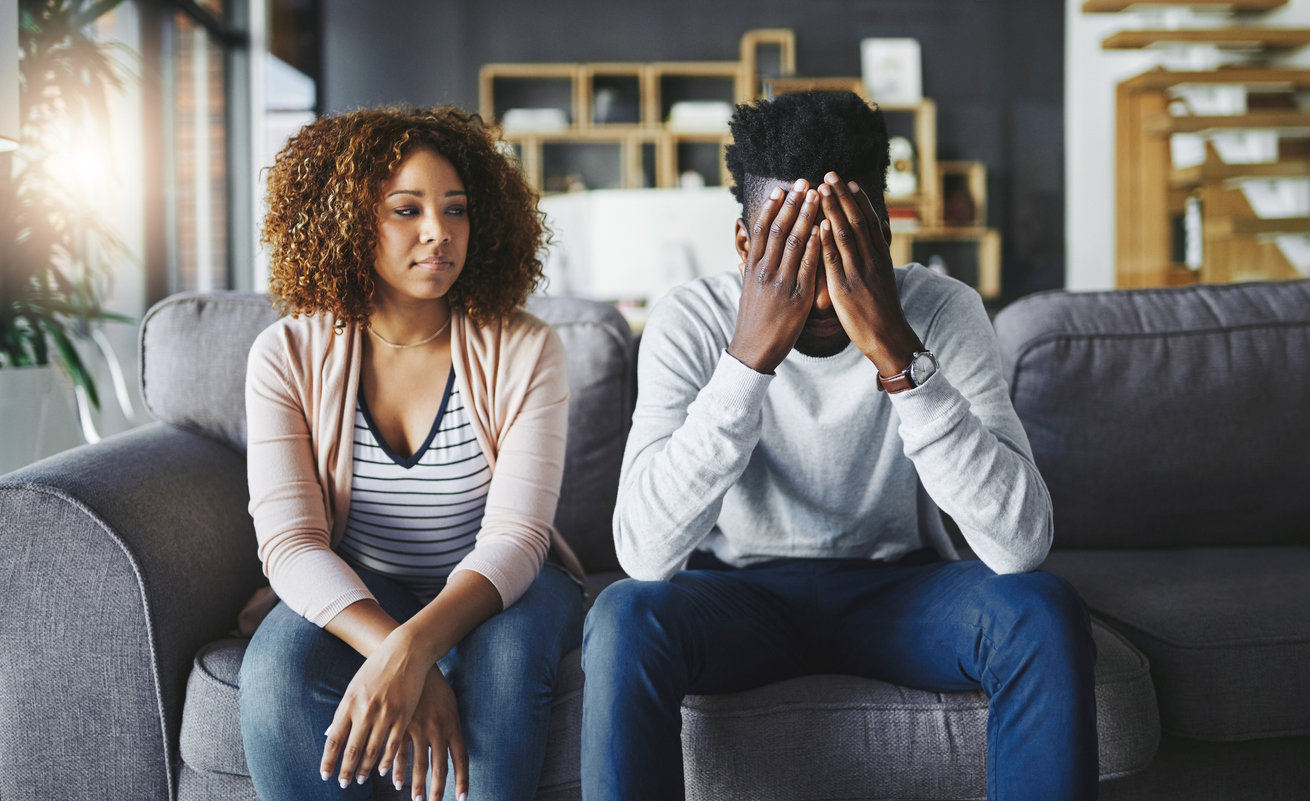
When kids internalize that being mean to each other is how couples behave, they unconsciously use it as a model for their own future relationships. We'd much rather have kids see us cordially co-parent with an ex, showing them an example of behaving graciously, rather than yelling at each other.
Feeling Like They Don't Know What to Expect
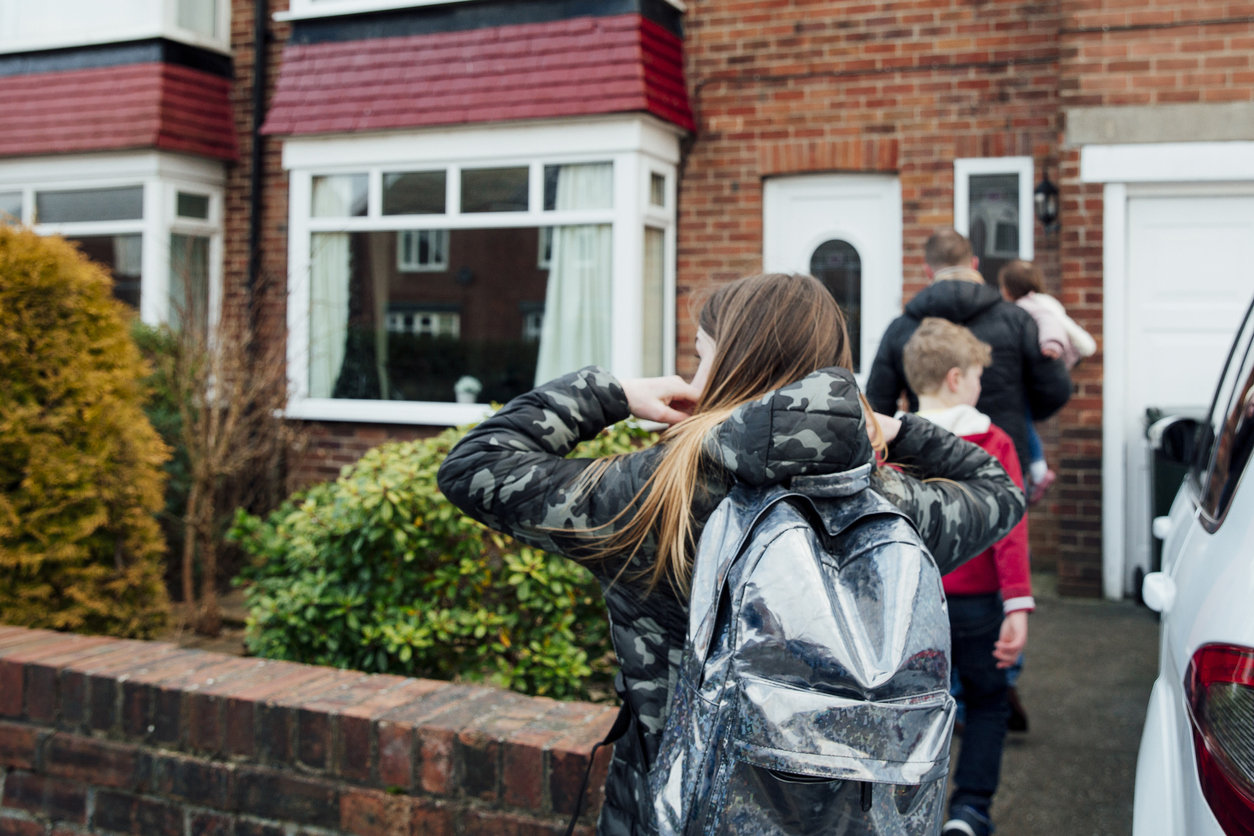
While a divorce will certainly shake things up for a period of time, it'll ultimately give them a more solid foundation in the form of two homes where they can feel stable and know that when they come home from school, everything's going to be fine.
Witnessing Violence
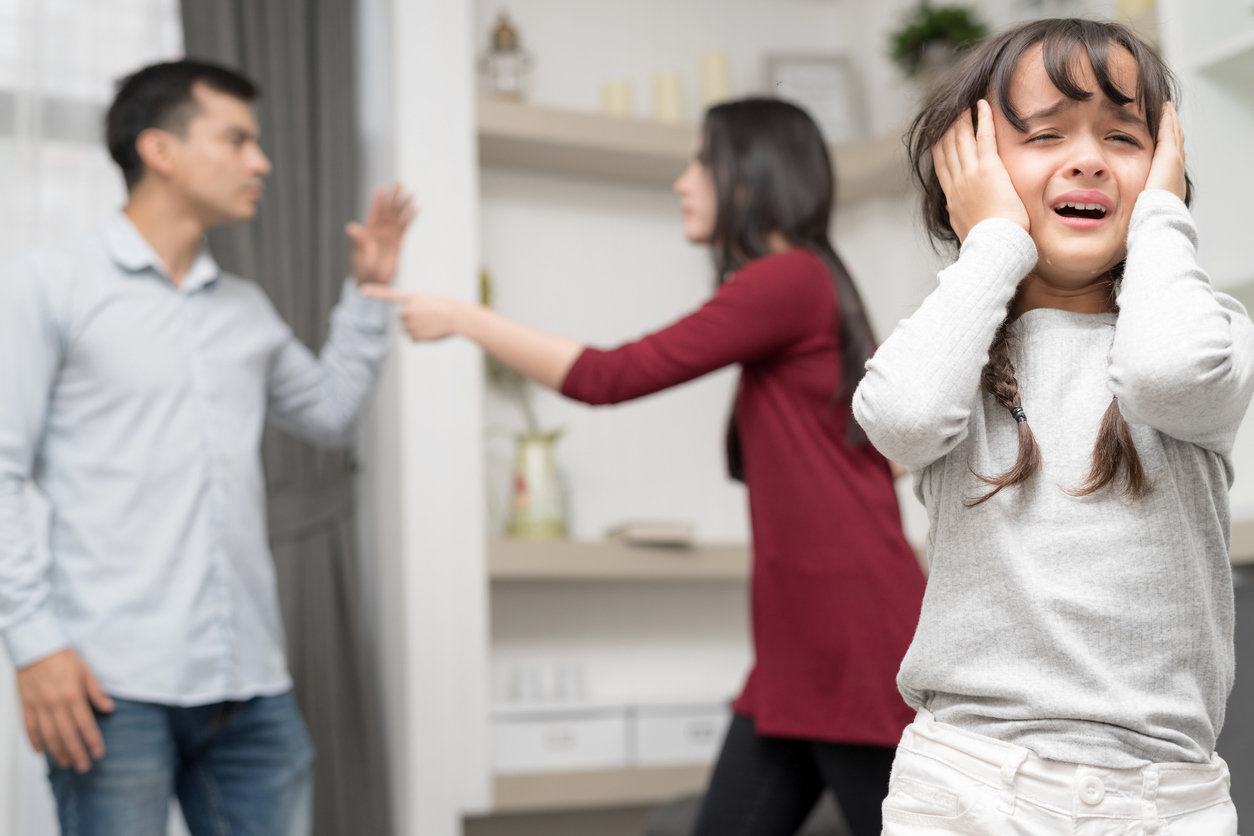
It's always better for kids to be in a safe home where they don't see violence. Even if the kid has never been struck, he's going to be concerned for the parent who is hurt, and almost certainly fear that he'll be next, too.
Feeling Like Their Lives Are Constantly Unstable

In homes where there's a divorce on the horizon (or a divorce is a good idea), the home is frequently unstable. Kids often feel like they're unable to know what's going to come next, and that can create a lot of anxiety. In divorced homes, kids can have peace, knowing what's ahead.
Being Distracted From School Because Their Parents Are Unhappy
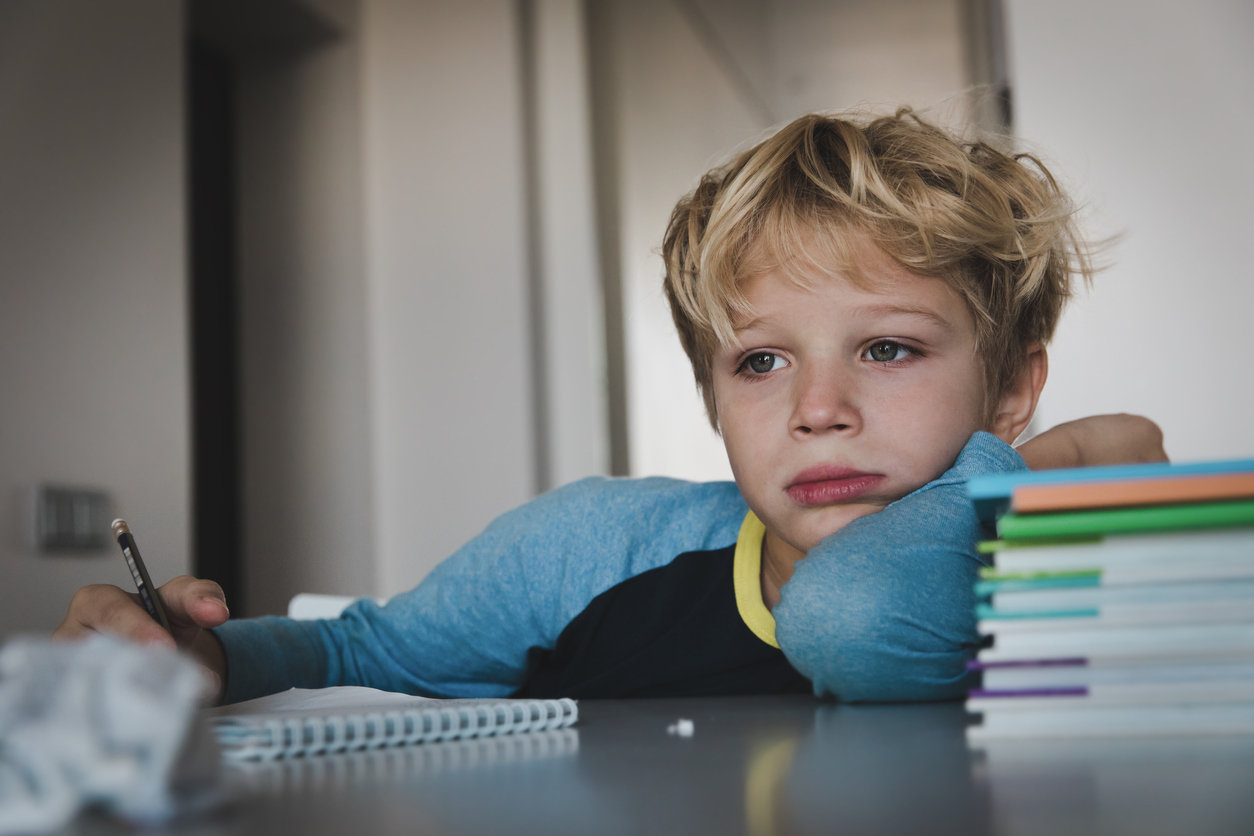
Watching parents be so unhappy at home always creates big distractions for kids, who should be able to focus on their own personal growth, expand their learning, and find out what makes them happiest — not think about their unhappy parents all the time.
Having a Parent Who Models Choosing Unhappiness

Kids learn how to behave by watching their parents. If a kid's parent has a great work ethic, it's much easier for the kid to have that, too. If a kid's parent makes choices that makes her happy, the kid will know to do that when he grows up — and if the parent makes choices that make her unhappy, he'll know to do that when he grows up, too.
Feeling Like Parents Can't Support Them Emotionally
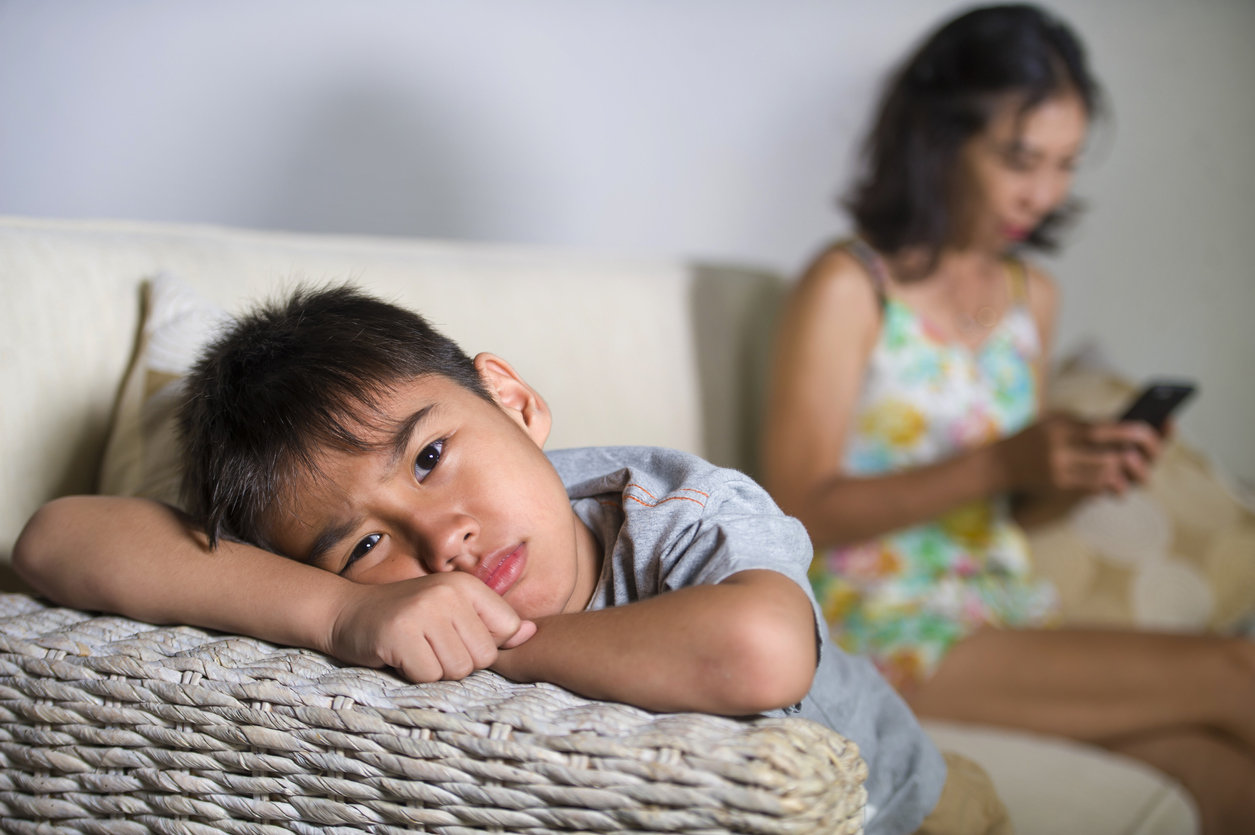
Kids whose parents are in need of a divorce may feel like their parents' emotional energy is being directed entirely at each other — and may feel pretty overlooked and lost as a result. Parents who get divorced tend to have more time and energy back to be supportive of their kids.
Watching Parents Who Refuse to Compromise
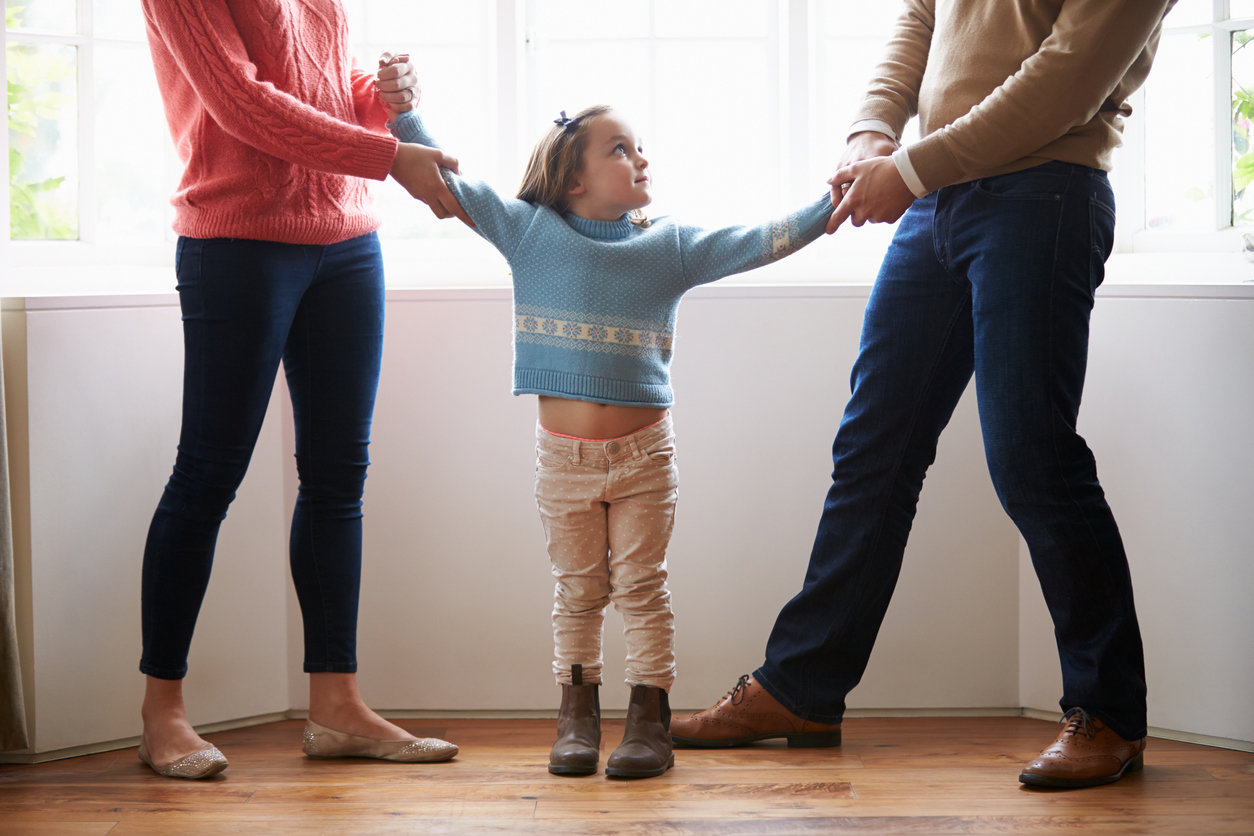
Parents who should get a divorce are rarely really doing a great job with compromising — but people who co-parent their kids compromise all the time. Kids see this behavior and will imitate it themselves, too.
Having Chaos Instead of Organization & Structure
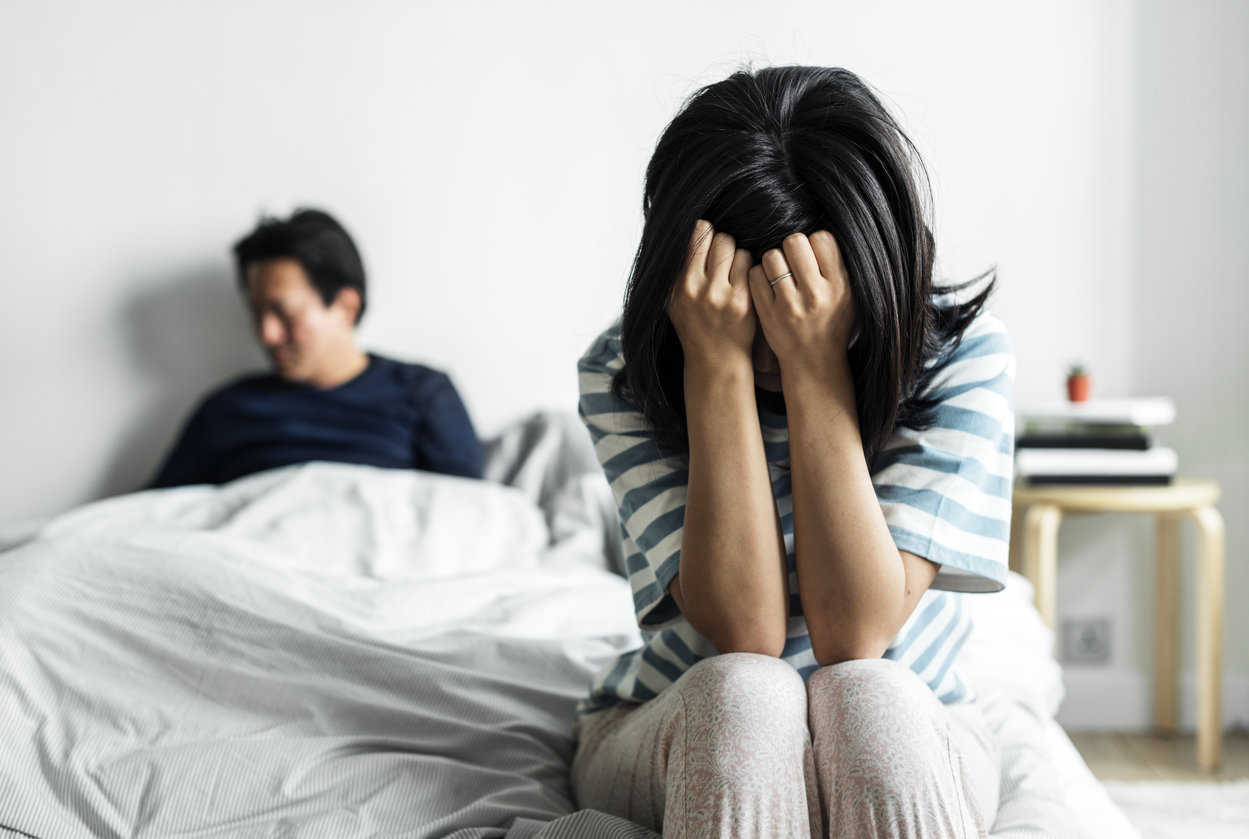
Kids really like boundaries and having a chaotic home — as almost all homes of people who should be divorced are, either emotionally or in terms of literal scheduling — can be really bad for their growth, whereas having two homes with strong boundaries in each one is great.
Feeling the Need to Defend One Parent From the Other

Whether the issues have escalated to one parent physically harming the other, or one is being regularly emotionally harmed with insults, this situation makes kids often feel like they have to pick a side and defend one parent against the other — instead of feeling like they can just freely love their parents equally.
Watching Parents Be Upset Instead of Solving Problems

Parents who would be happier divorced tend to have a hard time problem solving together, whether the issues are as simple as scheduling kids' pickup times or as big as making large financial decisions. Parents who co-parent, however, tend to be better at simple problem solving because they're no longer pushing each others' buttons about everything else.
Not Getting to Spend Quality Time With a Parent
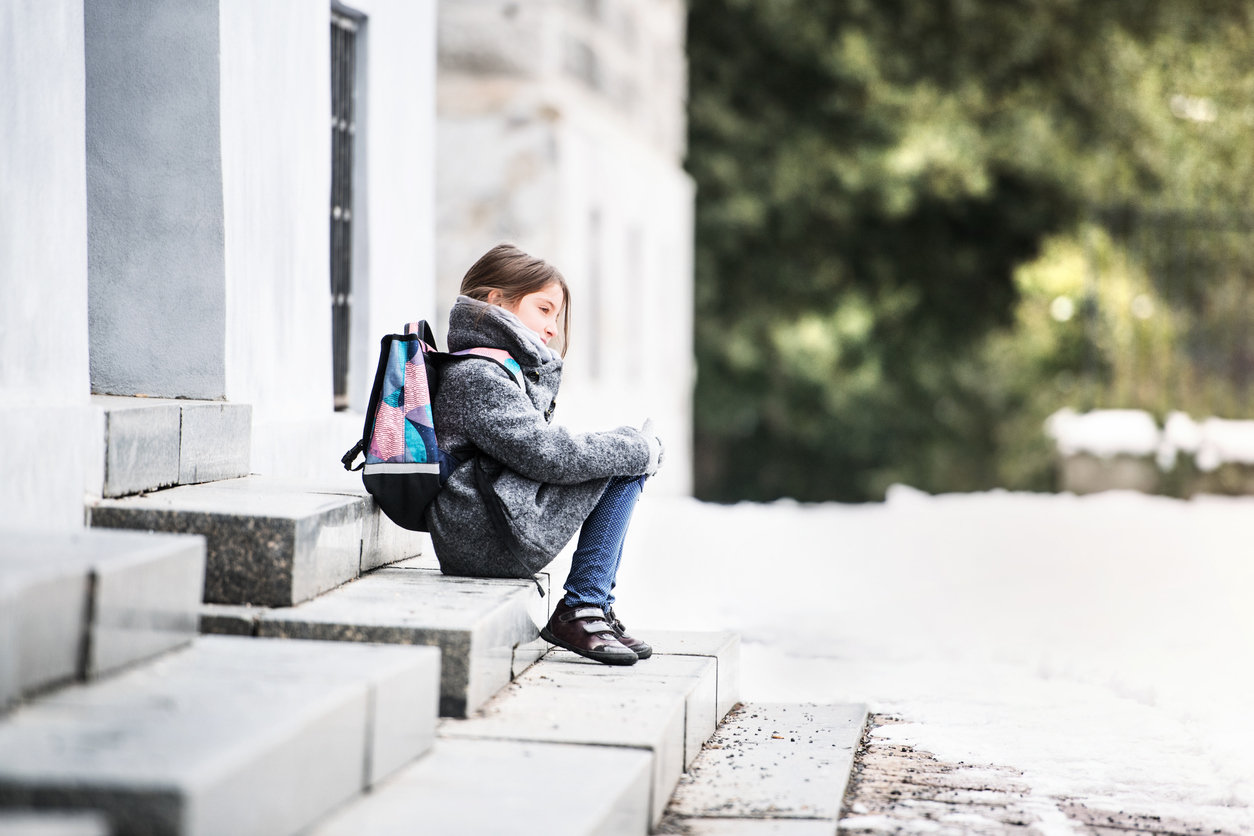
Maybe the most important thing for kids is to get to spend good, loving, quality time with a parent. Kids who don't have that because their parents are busy fighting often feel sad and left out, whereas kids who get to spend high-quality one-on-one time with a parent, as kids with divorced parents often do, tend to feel supported and heard.




